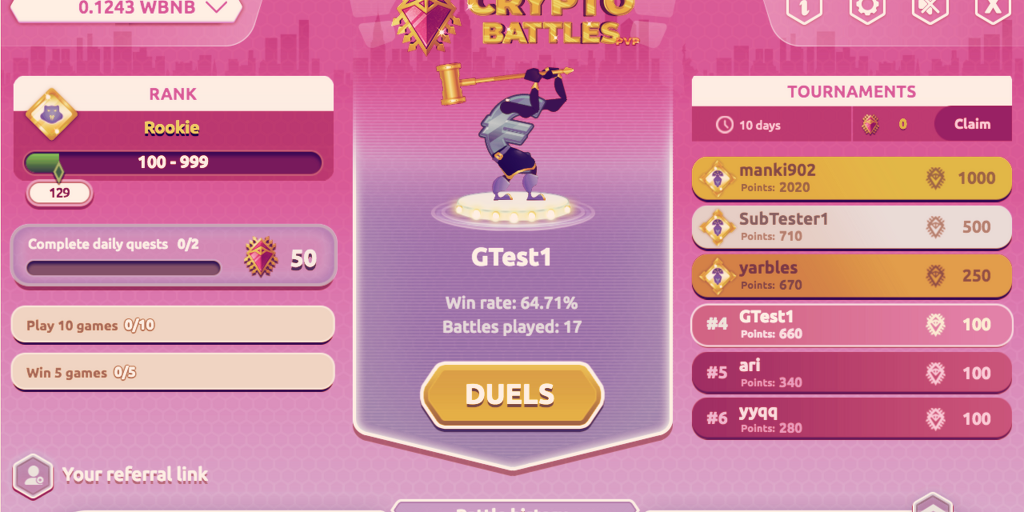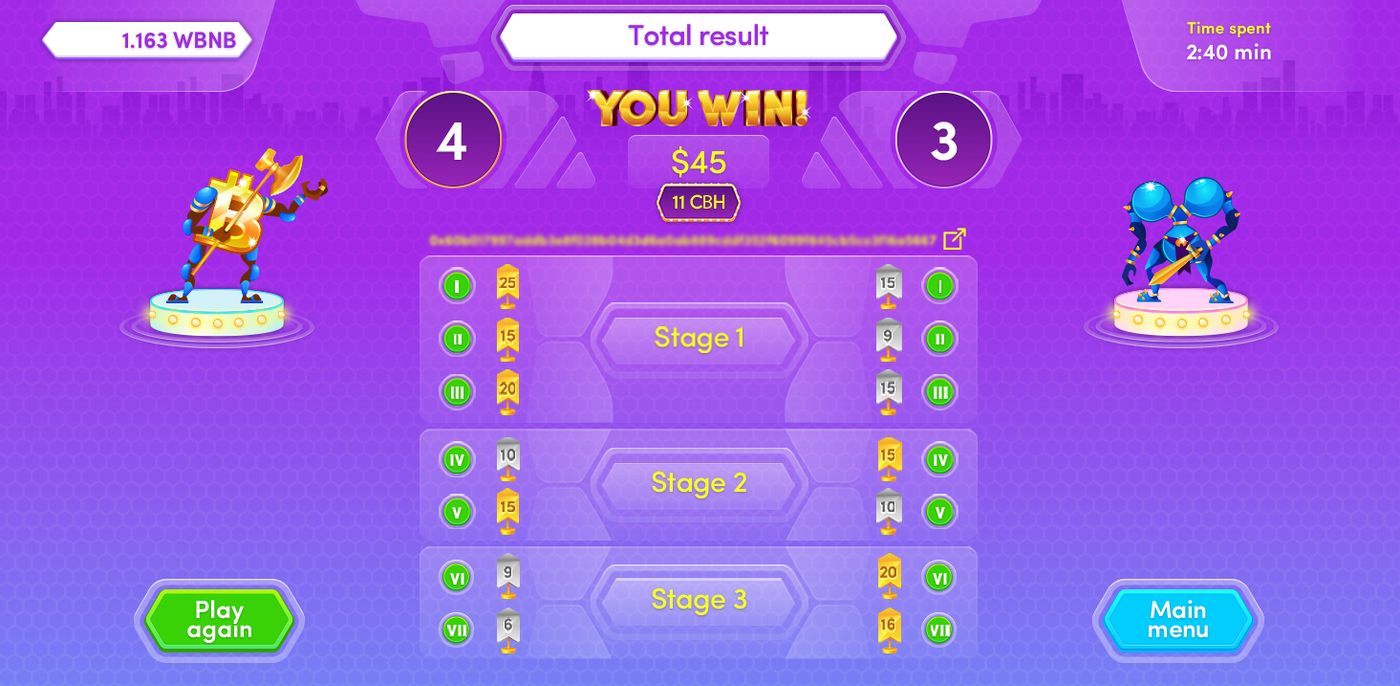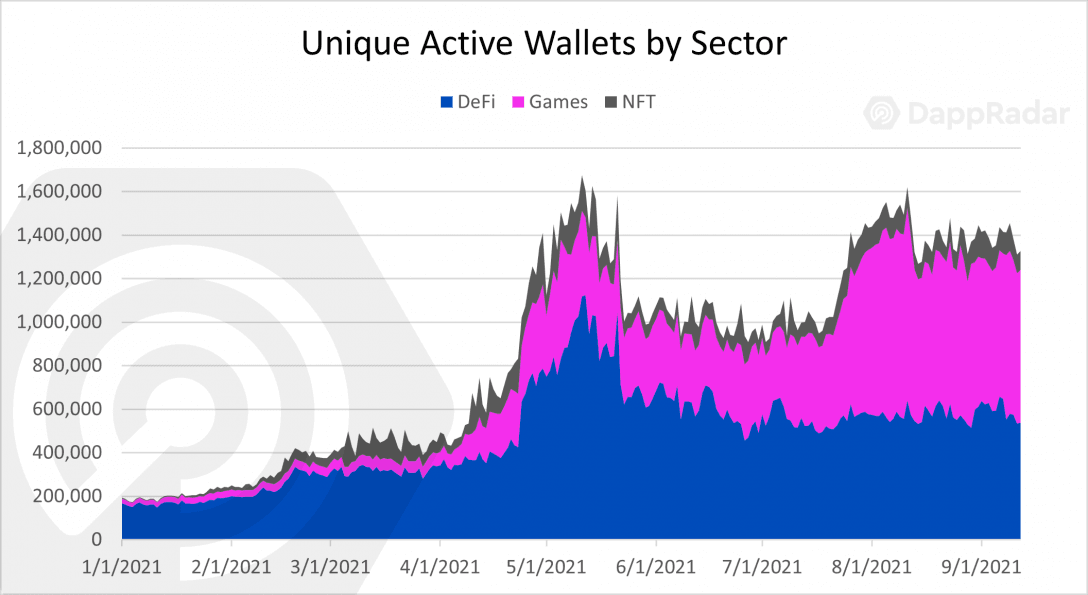Play-to-earn is a rapidly emerging niche in the gaming landscape, but it has far wider implications beyond video games.
According to a recent World Economic Forum (WEF) report, this new genre could “change how people interact with and perceive traditional socioeconomic structures like financial institutions, marketplaces, and governments,” constituting a “proof of concept for a self-sovereign financial system,” and more besides.
That’s already close to the reality in some Southeast Asian countries, where play-to-earn games and cryptocurrency are fast colliding, enabling savvy gamers to make around $3,000 a year in tradable tokens or valuables—more than the average per capita income.
But, all too often, these hard-won assets are owned or controlled by the host platform, according to Vitaliy Misan, cofounder of CryptoBattles, a blockchain-based game that’s leading a new generation of titles striving for full decentralization. He’s convinced that unlocking this last obstacle could skew current game-industry business models to gamers’ advantage.
Play-to-earn games: a market snapshot
Play-to-earn turns traditional gaming on its head because, instead of the platform’s publishers benefiting from a title’s popularity and leaving players financially out in the cold, gamers can trade, buy or sell the digital assets they win outside of the game, and gain other rewards besides.
With characters based on crypto and fiat currencies, CryptoBattles is an example of a player-versus-player (PvP) play-to-earn game. Currently in alpha, it’s web-based and features mobile play through a browser.
Players do battle with characters representing different cryptos. Image: CryptoBattles
Players hook a MetaMask wallet up to the CryptoBattles platform. As the game runs on Binance Smart Chain (BSC), they need a nominal amount of the Binance token, BNB, for gas, and then can use a selection of cryptocurrencies (wETH, wBNB, BTCB, USDC, BUSD and BSC-USD) to make a bet.
The winner earns 1.8x their bet plus additional rewards in CBT, the in-game utility token. (More on the game rules here.)
Most importantly, players have full control over the tokens they win or earn; they’re free to trade their tokens for other cryptocurrencies or convert them into their local fiat currency through a centralized exchange.
Why centralization can hurt play-to-earn gamers
Cryptocurrencies and blockchains have been a game-changer for play-to-earn, allowing players to create real-world value out of in-game items, often in the form of non-fungible tokens (NFTs). But even blockchain-based titles aren’t fully decentralized, in many cases.
“Most still require the authority of the publisher to define, issue and constrain the asset that eventually is traded as an NFT,” according to the WEF report.
Historically, game publishers and developers have shunned decentralization in favor of factors such as higher throughput, programmability, accessibility, and greater computational power. But this has had notable downsides.
On a traditional gaming platform reliant on centralized servers, platform operators can suspend users’ accounts, or limit access to assets—which they effectively control, and which are held on networks vulnerable to single-point failures and hacks.
In a decentralized network, if one server fails, the network continues across multiple locations, or nodes, which preserve its history and state of the game.
Hacks are also an issue for some decentralized liquidity protocols, but not for CryptoBattles, said Misan. “We don’t have any option for people to deposit funds, and, for this reason, “there is no sense for hackers to hack the smart contract,” he explained.
A decentralization game plan
CryptoBattles’ developers have focused on building a completely decentralized network—so they are responsible only for some backend aspects of the game, but have no control over any of the user assets or finance.
Instead, the entire game is regulated by smart contracts, which take care of key features including registration, betting, and rewards.
And, unlike some play-to-earn titles such as Axie Infinity, CryptoBattles doesn’t lock players into the platform by requiring them to buy the game’s NFTs in order to play.
CryptoBattles is fully decentralized, so players have total control over their funds and winnings. Image: CryptoBattles
Revenue is generated by in-game commissions, rather than from “money printing” of in-game tokens, which some blockchain-based games rely on.
With a beta version due in early 2022, and upcoming features including staking, governance, and NFTs in the shape of unique in-game skins, there’s much to look forward to.
Currently, the project team takes a 10% fee from each bet, which is placed in a pool. “In future people will stake our governance token and will be able to claim rewards from this pool,” said Misan. Token holders will also have a say on platform improvements and new features.
And support for other blockchains is coming too. Polygon, a scalability solution for Ethereum, is one of the first integrations planned.
The number of unique active wallets connected to gaming dapps (decentralized apps) is on the rise. Image: DappRadarThe rising popularity of games such as Axie Infinity has already boosted the entire cryptocurrency industry. During the last quarter, the number of unique active wallets (UAWs) connected to gaming dapps made up 49% of all UAWs, per analysis by DappRadar.
In what’s primed to be a bumper year for the emerging play-to-earn sector, the robustness provided by full decentralization is shaping up to be a key draw for gamers.
Sponsored post by CryptoBattles
This sponsored article was created by Decrypt Studio. Learn More about partnering with Decrypt Studio.
Source: https://decrypt.co/86892/the-next-generation-of-play-to-earn-games-will-be-fully-decentralized


 CryptoBattles is fully decentralized, so players have total control over their funds and winnings. Image: CryptoBattles
CryptoBattles is fully decentralized, so players have total control over their funds and winnings. Image: CryptoBattles

